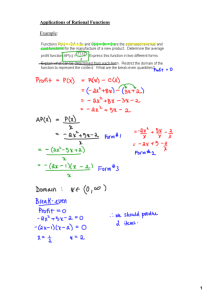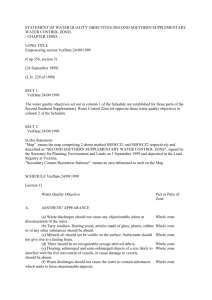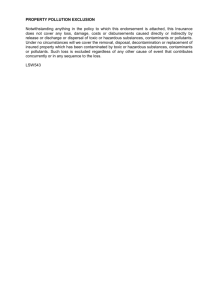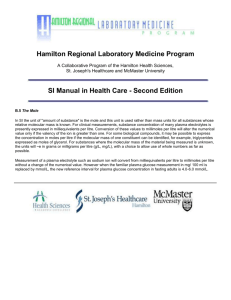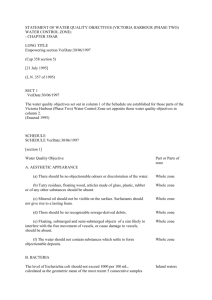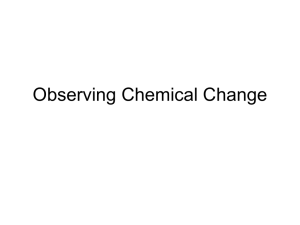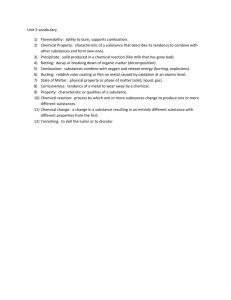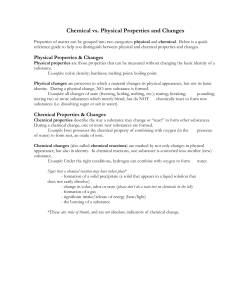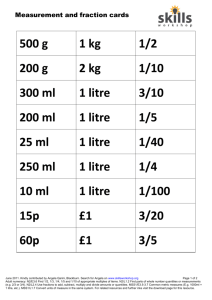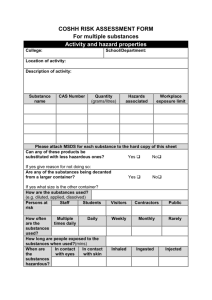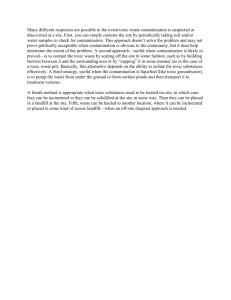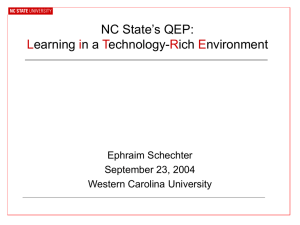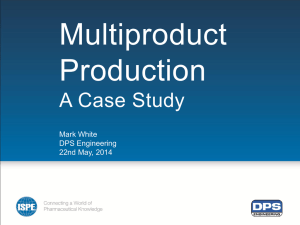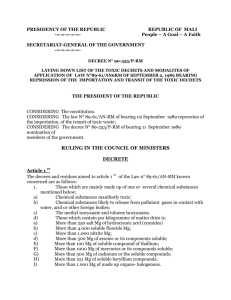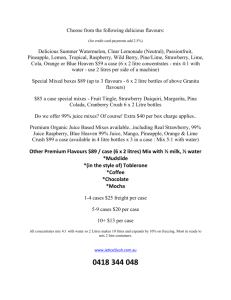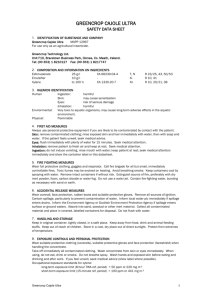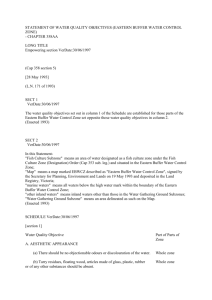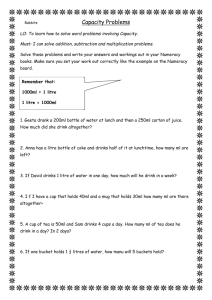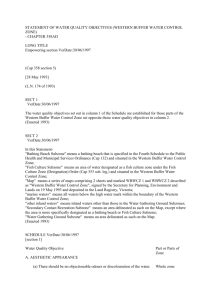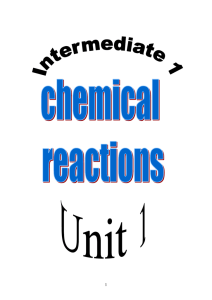STATEMENT OF WATER QUALITY OBJECTIVES (SOUTHERN
advertisement
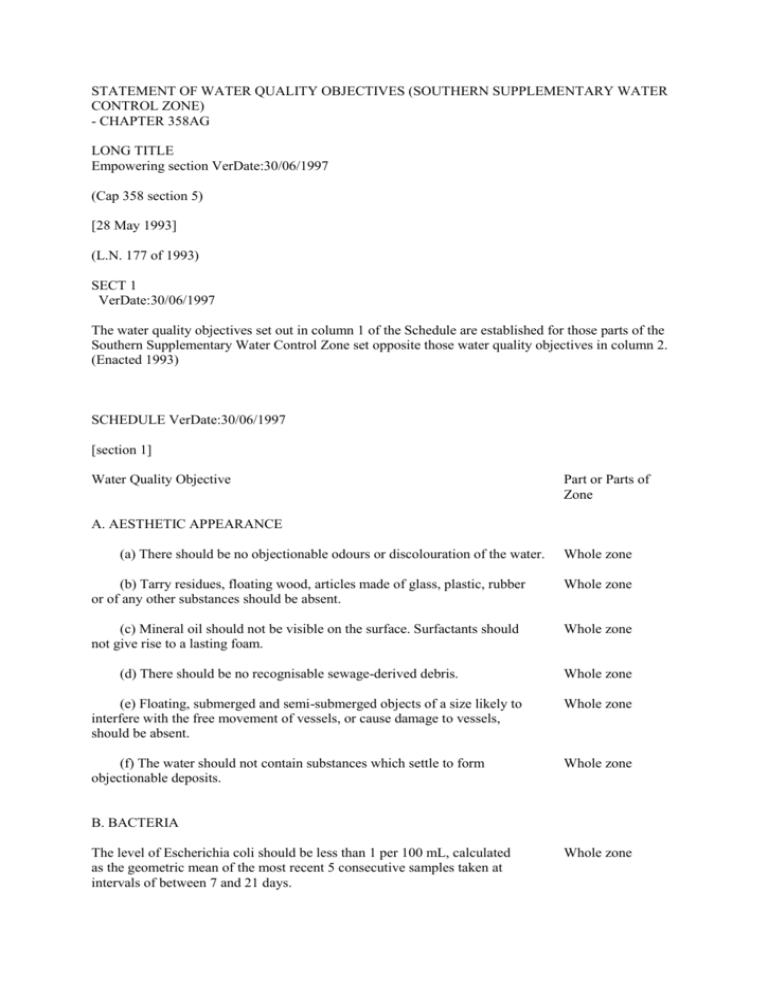
STATEMENT OF WATER QUALITY OBJECTIVES (SOUTHERN SUPPLEMENTARY WATER CONTROL ZONE) - CHAPTER 358AG LONG TITLE Empowering section VerDate:30/06/1997 (Cap 358 section 5) [28 May 1993] (L.N. 177 of 1993) SECT 1 VerDate:30/06/1997 The water quality objectives set out in column 1 of the Schedule are established for those parts of the Southern Supplementary Water Control Zone set opposite those water quality objectives in column 2. (Enacted 1993) SCHEDULE VerDate:30/06/1997 [section 1] Water Quality Objective Part or Parts of Zone A. AESTHETIC APPEARANCE (a) There should be no objectionable odours or discolouration of the water. Whole zone (b) Tarry residues, floating wood, articles made of glass, plastic, rubber or of any other substances should be absent. Whole zone (c) Mineral oil should not be visible on the surface. Surfactants should not give rise to a lasting foam. Whole zone (d) There should be no recognisable sewage-derived debris. Whole zone (e) Floating, submerged and semi-submerged objects of a size likely to interfere with the free movement of vessels, or cause damage to vessels, should be absent. Whole zone (f) The water should not contain substances which settle to form objectionable deposits. Whole zone B. BACTERIA The level of Escherichia coli should be less than 1 per 100 mL, calculated as the geometric mean of the most recent 5 consecutive samples taken at intervals of between 7 and 21 days. Whole zone C. COLOUR Human activity should not cause the colour of water to exceed 30 Hazen units. Whole zone D. DISSOLVED OXYGEN The level of dissolved oxygen should not be less than 4 mg per litre. Whole zone E. pH Human activity should not cause the pH of the water to exceed the range of 6.5-8.5 units. Whole zone F. TEMPERATURE Human activity should not cause the natural daily temperature range to change by more than 2.0 degrees Celsius. Whole zone G. SALINITY Human activity should not cause the natural ambient salinity level to change by more than 10 %. Whole zone H. SUSPENDED SOLIDS Human activity should not cause not cause the annual median of suspended solids to exceed 20 mg per litre. Whole zone I. AMMONIA The un-ionized ammoniacal nitrogen level should not be more than 0.021 mg per litre, calculated as the annual average (arithmetic mean). Whole zone J. 5-DAY BIOCHEMICAL OXYGEN DEMAND The 5-day biochemical oxygen demand should not exceed 3 mg per litre. Whole zone K. CHEMICAL OXYGEN DEMAND The chemical oxygen demand should not exceed 15 mg per litre. Whole zone L. TOXIC SUBSTANCES (a) Toxic substances in the water should not attain such levels as to produce significant toxic, carcinogenic, mutagenic or teratogenic effects in humans, fish or any other aquatic organisms, with due regard to biologically cumulative effects in food chains and to interactions of toxic substances with each other. Whole zone (b) Human activity should not cause a risk to any beneficial use of the aquatic environment. Whole zone (Enacted 1993)
